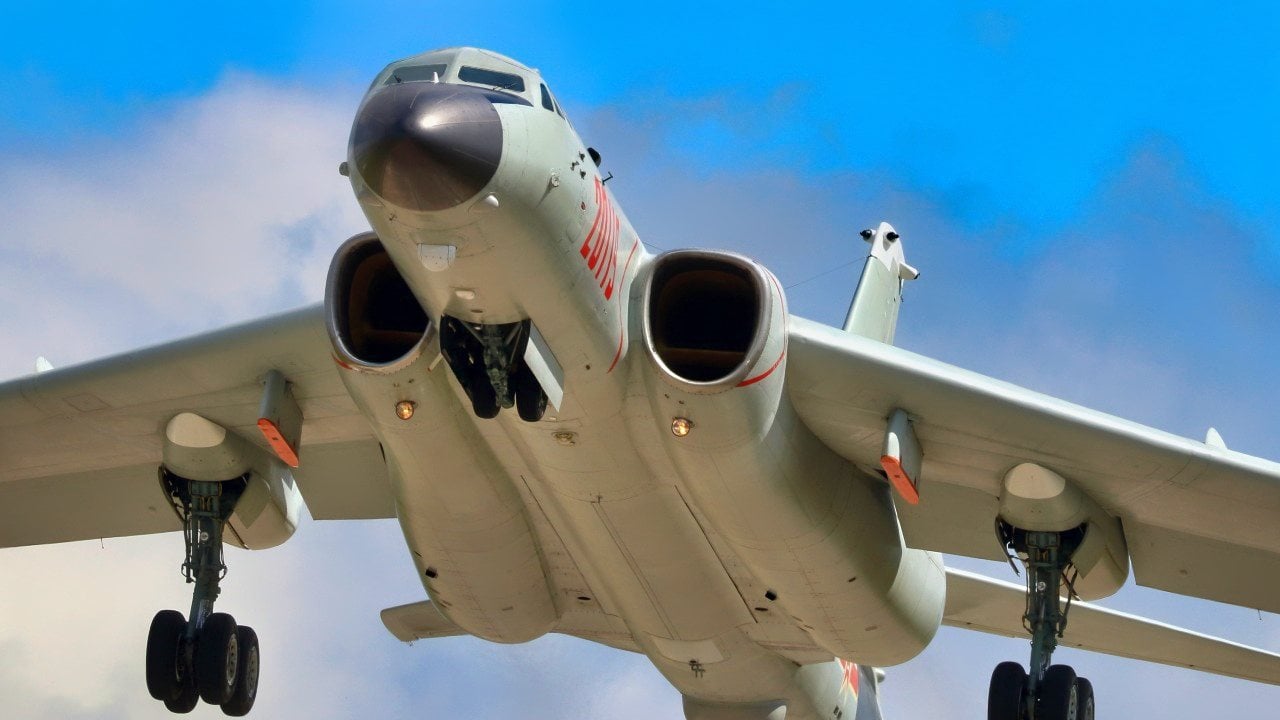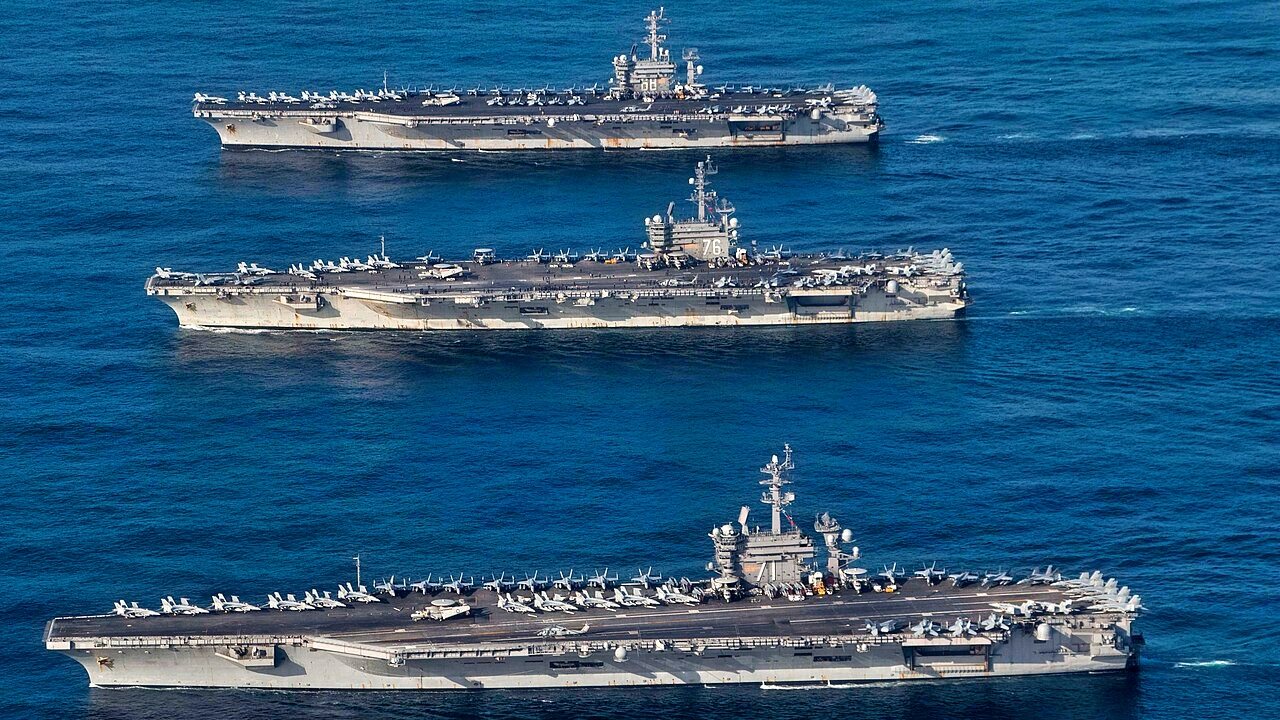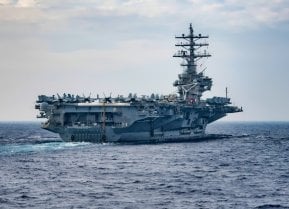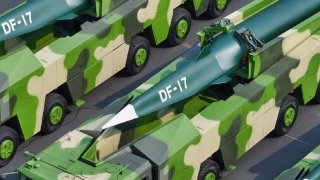China Has Thousands of Missiles It Could Use in a War Against America
China’s advantage over the U.S. in theater-range missiles could make it able to ‘intimidate’ frontline states like Japan during a crisis over Taiwan.
Toshi Yoshihara, a senior fellow at the Center for Strategic and Budgetary Assessments, has been sounding the alarm over the threat that China’s arsenal of missiles poses to U.S. and allied forces operating in the Indo-Pacific. According to Yoshihara in an interview with Nikkei Asia, “China’s advantage over the U.S. in theater-range missiles could make it able to ‘intimidate’ frontline states like Japan during a crisis over Taiwan.”

Yoshihara explained that the U.S. military had “few symmetrical or in-kind options to match the rapid growth in Beijing’s intermediate-range arsenal.”
A Pentagon assessment last summer showed that China “possessed more than 500 operational nuclear warheads” and found that the regime “will probably have over 1,000 operational nuclear warheads by 2030.”
But the nuclear weapons threat is ancillary to the threat that China’s conventional missile and even hypersonic weapons arsenals pose to U.S. and allied military forces operating in the Indo-Pacific, especially in the waters closest to China.
China doesn’t even need to worry about nuclear capabilities. The real problem facing China is the U.S. military’s ability to deploy its forces close to Chinese territory. If China can overcome that threat, nukes become less advantageous to Beijing.
China’s Conventional Missile Threat
China’s conventional missile force has reached such proportions, and their ability to track U.S. warships moving about the region has become so advanced, that the People’s Liberation Army Rocket Forces can make plans to overwhelm the shipborne defenses of most U.S. surface ships and keep them beyond operational ranges.
America’s military, meanwhile, basically sat back and watched for more than a decade as China rapidly built up its rocket and missile forces. There is no way for the Americans today to counter the threat.
Sure, in the event of a conflict, the rocket forces might be bombed.
But the likeliest method for the U.S. military to bomb those systems would be to deploy from air bases in the region or from aircraft carriers. Both the U.S. military’s air bases and its carriers could be destroyed or kept beyond their operational ranges by China’s superior missile forces.
With the Americans either destroyed or held back, China would have free range to impose their will upon their weaker neighbors.
China’s missile obsession came from their experience with the U.S. military during the 1996 Taiwan Strait Crisis. Back then, the United States was the unquestioned global hegemon. As a presidential election was underway in Taiwan, China’s leadership sought to intimidate Taiwan’s population by firing ceaseless fusillades of missiles over the island, in an attempt to dissuade the Taiwanese from electing a pro-independence leader. (Taiwan ultimately did elect a pro-independence leader that year.)
To stop the intimidation, then-U.S. President Bill Clinton ordered the deployment of two U.S. Navy aircraft carriers to sail through the Taiwan Strait. The crisis ended immediately. Not only did Beijing see that they could be completely humiliated by two U.S. warships, but China’s leadership realized that, if the U.S. Navy wanted to strike China from those carriers, the Americans could do untold amounts of damage to China.

The Chinese resolved to never again be intimidated in such a way. They spent decades modernizing their forces and developing the capabilities and tactics to prevent such a humiliation from ever being repeated.
What Is to Be Done?
Today, China’s massive arsenal of in-theater missiles is the result of those experiences. Because of these investments, China now has the ability to sink any U.S. surface warship that comes within their range.
Further, China has the capacity to devastate U.S. military air bases in the region. When the inevitable Chinese invasion of Taiwan begins, the Americans are likely to find the bulk of their forces boxed out of the region and/or destroyed by this Chinese missile threat.
This is the result of unimaginative, bureaucratic, and decadent leadership in Washington. Their failures to understand the China threat and to develop reliable countermeasures meant to overcome that threat might well lead to the first major military defeat of the U.S. armed forces at the hands of a foreign power.

China's Missiles: Who Is at Fault?
There can be no “defense of Taiwan” if U.S. military assets are unable to get within range of China’s invasion force.
Get ready for a truly new world order to be forced upon us by the autocratic regimes of Eurasia.
About the Author:
Brandon J. Weichert, a National Interest national security analyst, is a former Congressional staffer and geopolitical analyst who is a contributor at The Washington Times, the Asia Times, and The-Pipeline.


